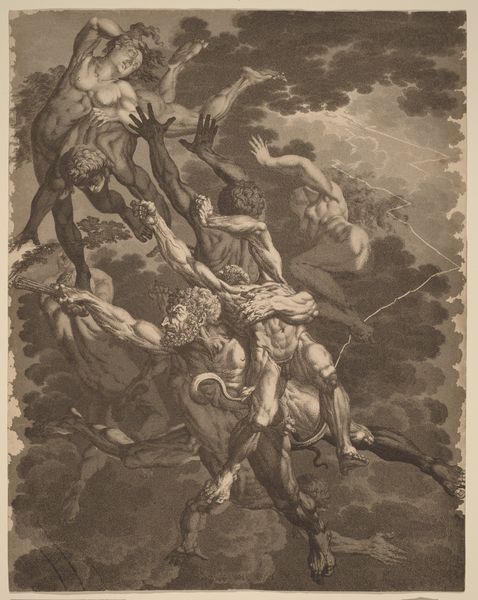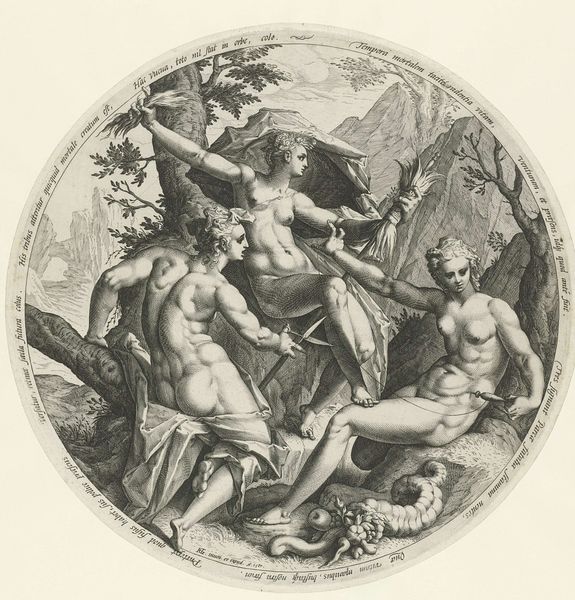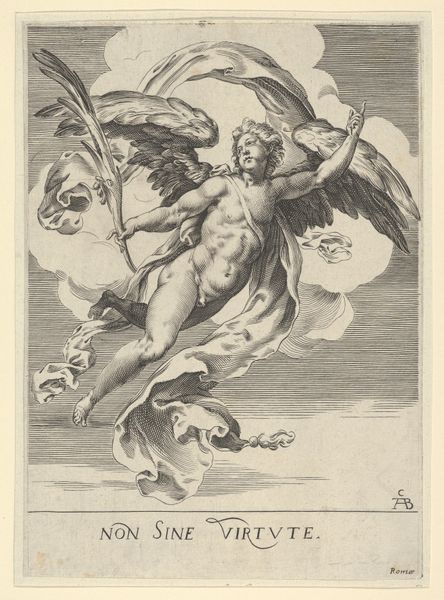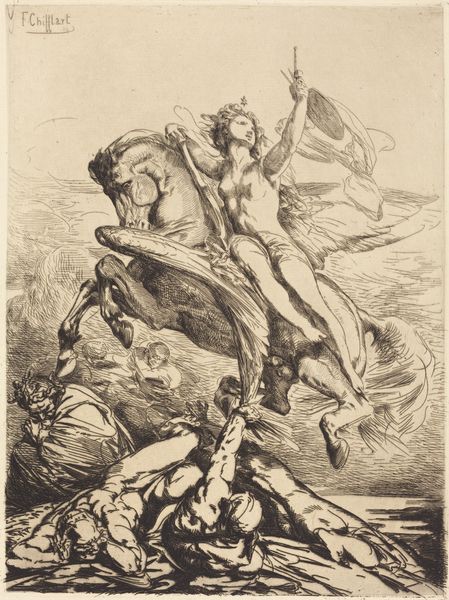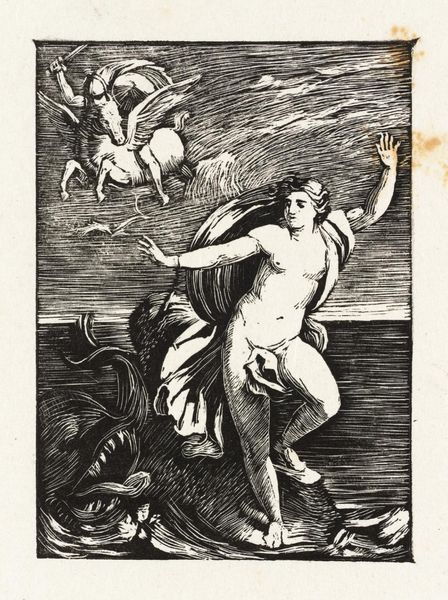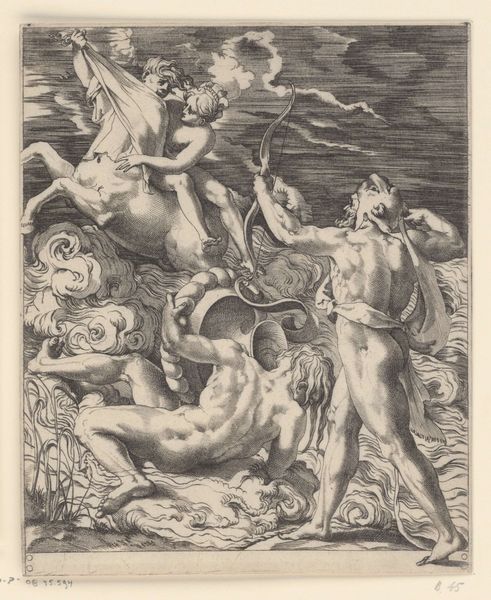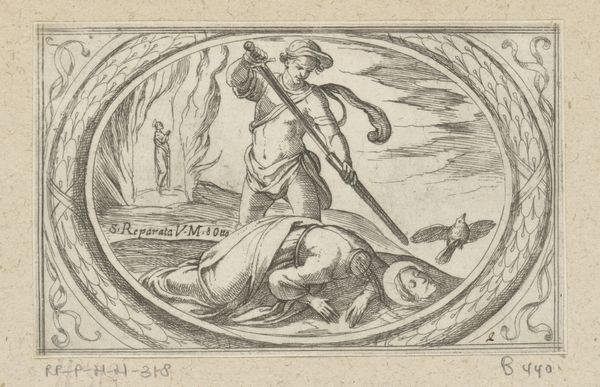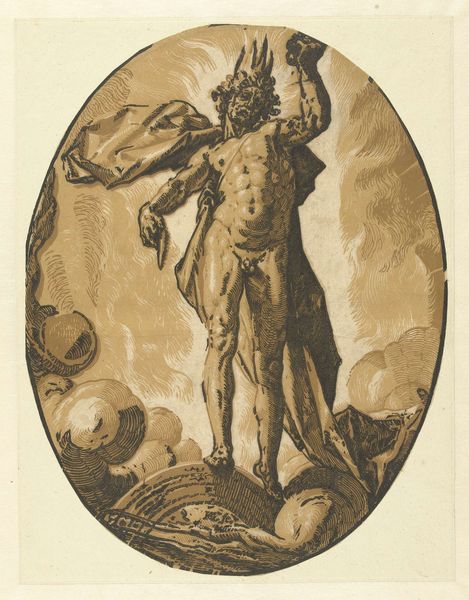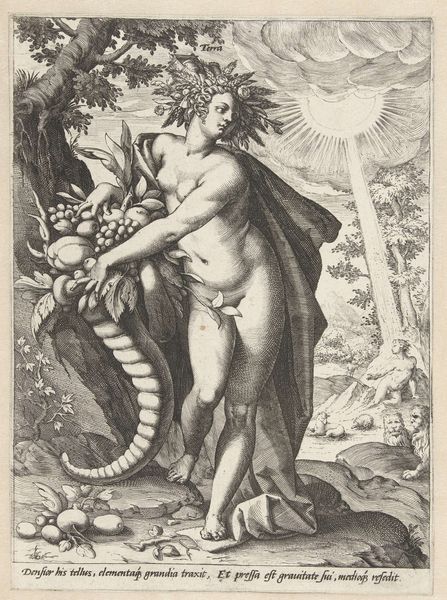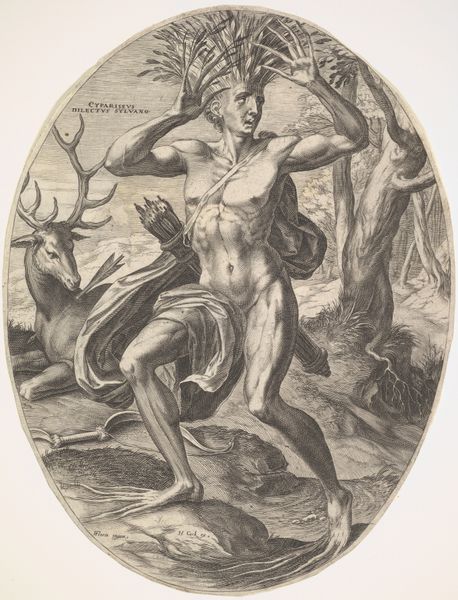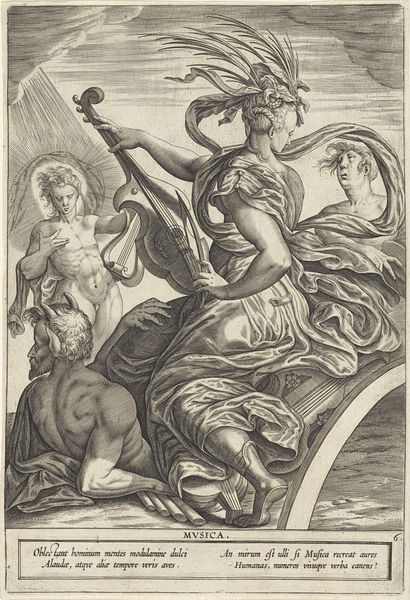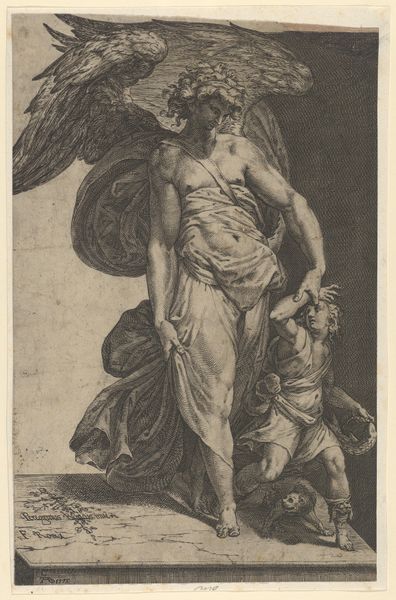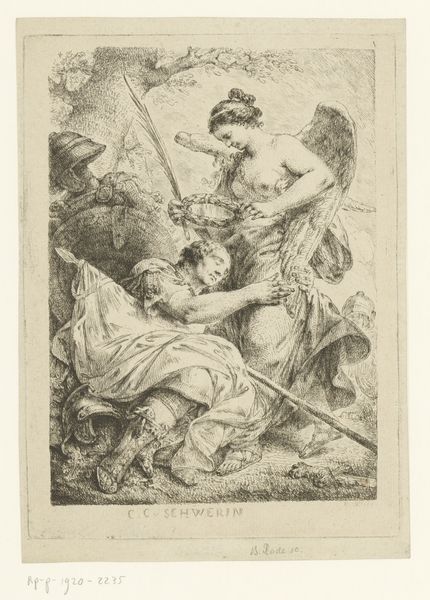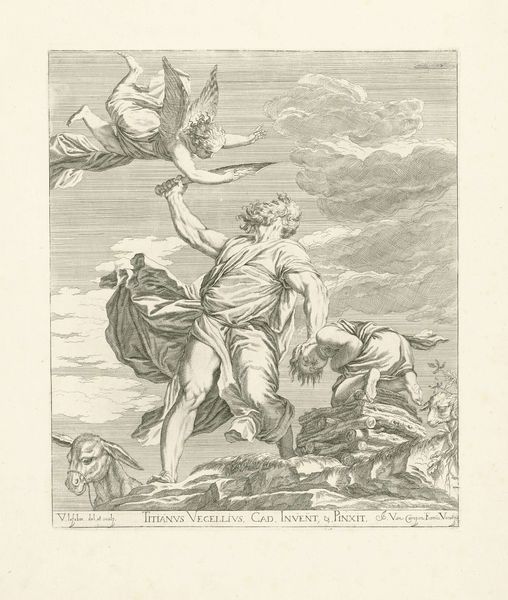
engraving
#
portrait
#
toned paper
#
allegory
#
caricature
#
mannerism
#
figuration
#
form
#
line
#
portrait drawing
#
nude
#
engraving
Dimensions: height 352 mm, width 265 mm
Copyright: Rijks Museum: Open Domain
Editor: This is "Thetis," an engraving by Hendrick Goltzius from around 1590. The tonal contrasts create such drama, and the oval format feels so self-contained. I'm really drawn to her gaze and wonder about her story. How do you interpret this work? Curator: This engraving pulsates with symbolic weight, doesn’t it? Notice how Thetis, a sea nymph, is presented not just as a beautiful figure, but as a visual embodiment of Mannerist ideals—exaggerated musculature, a dynamic pose that defies naturalism. What do such distortions convey to you? Editor: It’s like she’s meant to be seen as almost superhuman, larger than life! The way she dominates the composition, too, makes her feel very powerful. Curator: Precisely. Now, consider the dolphin. In Renaissance imagery, it often symbolized speed, diligence, and love. Does its presence, along with the tumultuous sea behind her, enhance your sense of Thetis’ dominion over the waters, but also, perhaps, over her passions? Editor: Yes, I see that now! The dolphins are both regal and very active in the churning sea. And if the ships in the background symbolize struggle and progress, is Goltzius suggesting Thetis controls those aspects of life? Curator: That’s a keen observation. Thetis’ narrative ripples outwards. She not only embodies ideals of beauty and power, but also becomes an anchor point for the era’s understanding of the sea, fate, and the interplay of human ambition and the elements. It's about so much more than the ocean itself. Editor: This makes me think about how much we read into these images! I now feel as though I know more about cultural storytelling through symbols. Curator: And perhaps we both understand a bit more about how the past uses images to hold cultural memory.
Comments
No comments
Be the first to comment and join the conversation on the ultimate creative platform.
